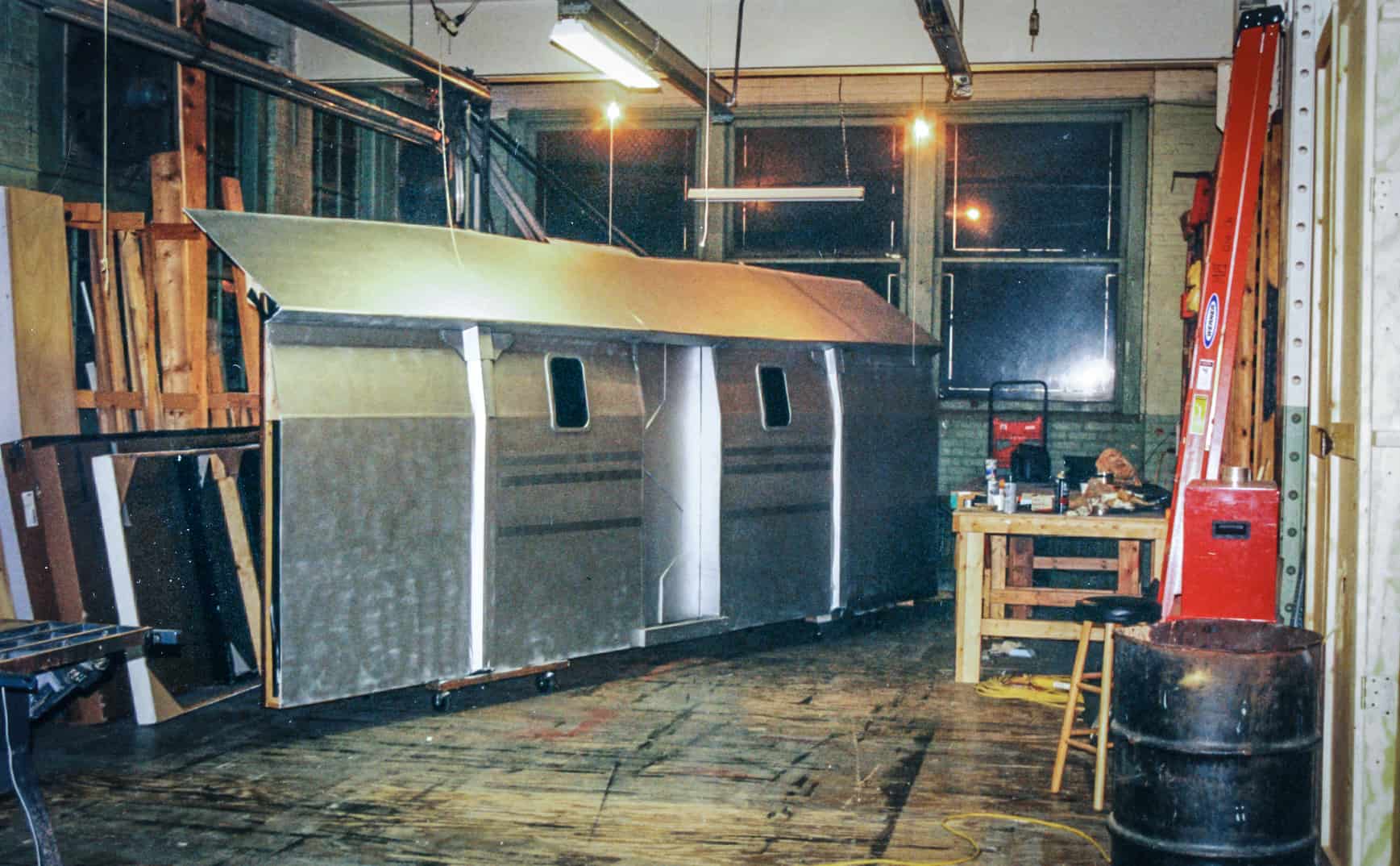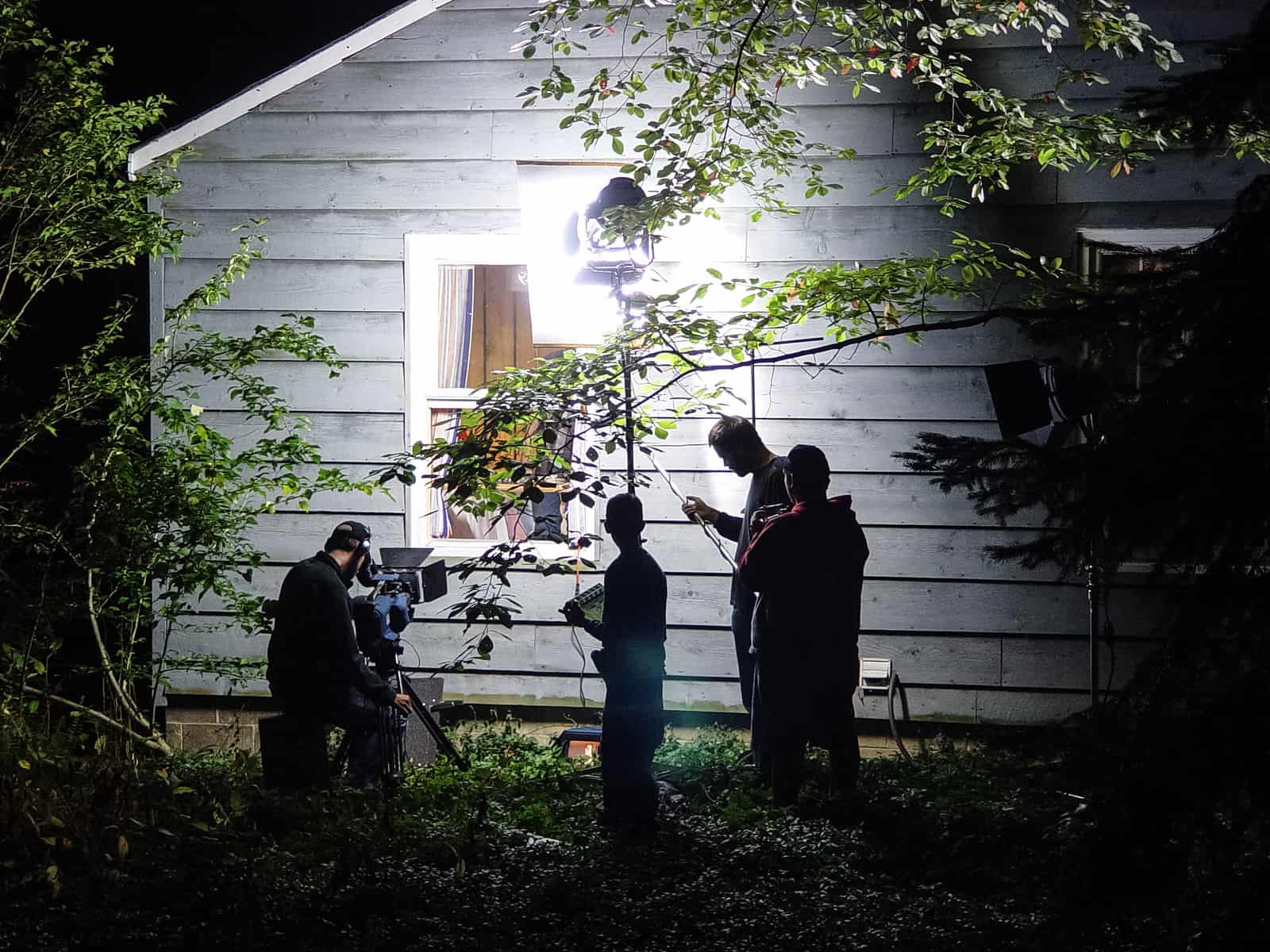The art of creating a believable world starts by creating a believable environment for your story. While shooting on location may be ideal, some shoots require a built set. The challenge facing every filmmaker is how to get the most for money. Building a set doesn’t have to be expensive – creative thinking and utilizing available resources are the best way to start.
Ideally movie sets are built on soundstages equipped with sound-reducing walls, a light grid for rigging lights and set pieces, ample power, large doors for loading and unloading, dressing rooms, production equipment and even a kitchen. Unfortunately many low budget productions can’t afford proper production facilities, but with some creative thinking you can adapt an existing building into a makeshift soundstage. And the art of building a low budget soundstage means finding that balance between cost and the look.
The first step is to find a large facility in which you can build a set but also meets the technical needs of your production.
- Vacant Buildings – Landlords of vacant commercial properties may be willing to give you a space for free or for a heavily discounted rate if you plan on using it for a short time. Make sure the building still has utilities such as power and running water. Empty grocery stores, shopping malls, strip centers and factory buildings provide plenty of room to work, spacious parking, loading areas and sufficient power.
- Accessibility – Make sure that the rental space has a loading dock or is otherwise accessible to trucks so that you can bring lumber, set dressing, and production equipment. If you plan on building flats, make sure there are large doors called elephant doors that can accommodate 8’ or 10’ tall flats.
- Power and Utilities – Check the power and circuit configuration in the building to ensure that it can support the electrical draw of the lighting gear. Also make sure the water and toilet facilities are in good working order and there is heat, especially in the winter.
- Ambient Noise – Listen to the ambient sound outside the building. Warehouses or gymnasiums aren’t designed for the acoustics needed for film production. Avoid buildings near freeways or heavily trafficked areas.
- Parking – Make sure there are ample parking spaces for the cast and crew and any equipment trucks.
- Garbage – If you are planning on constructing sets, you’ll need to dispose of the excess materials, garbage, and when the shoot is over, the set itself. Because the landlord may not (and should not) be responsible for your garbage, you may need to contact a local company to rent a dumpster.
- Security – Always ensure the building can be secured, and never leave any valuable gear there unsupervised. That absolutely includes cameras, camera gear, lenses, and computers.
Finding an empty commercial property may be a great way to cut corners on your budget, all while providing a lot of space. Just be aware of the limitations before you start, and you should have a smooth production experience.



